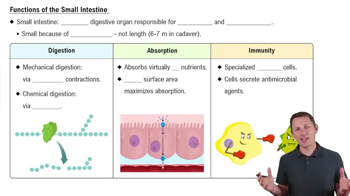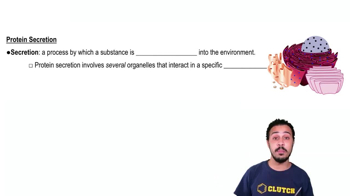Identify the six types of epithelial tissue shown in the drawing below.
d. ___
 Verified step by step guidance
Verified step by step guidance Verified video answer for a similar problem:
Verified video answer for a similar problem:



 0:48m
0:48mMaster 5 Characteristics of Epithelia with a bite sized video explanation from Bruce Bryan
Start learning